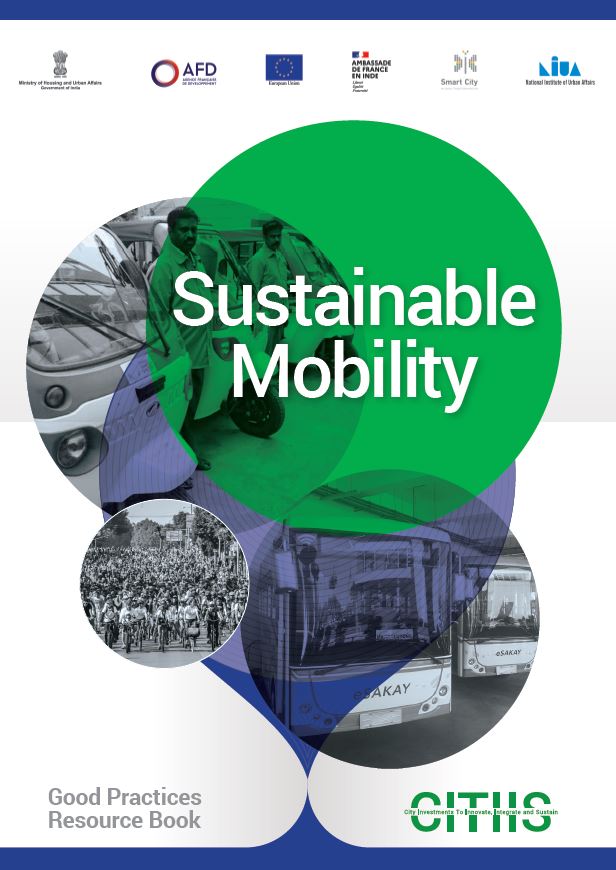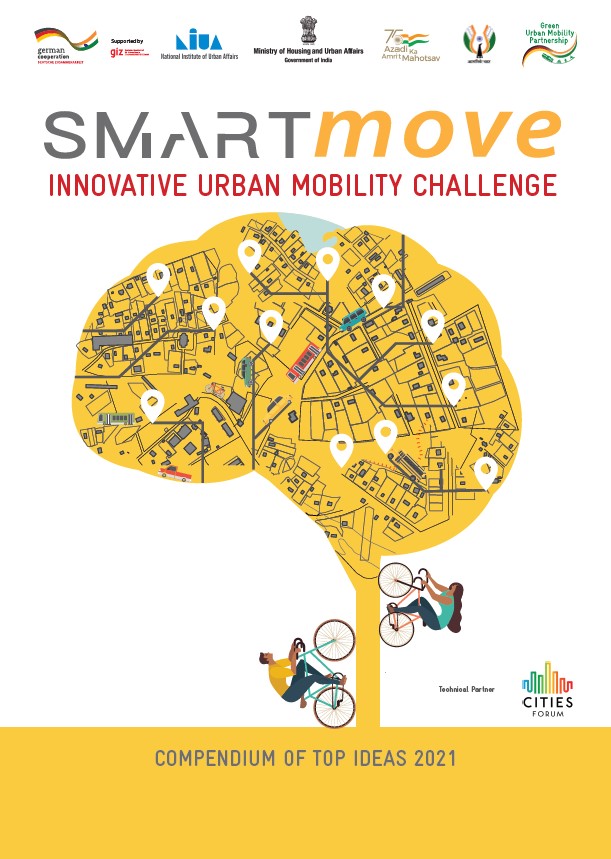Urban Mobility
The Government of India under NATRiP (National Automotive Testing and R&D Infrastructure Project), plans to set up R&D centres at a total cost of $388.5 million which will be primarily focused on building a strong manufacturing and R&D hub. In the mobility sector, the Government of India’s flagship initiative of Startup India, intended to build a strong ecosystem to nurture innovation (GoI 2016), has 2,218 startups in the transportation and storage industry under five sectors (GoI 2021).
The freight and logistics sector has 1,116 startups related to cargo and trading while the passenger transport services sector has 636 startups focusing on cabs and bike rentals, tours, and travels. The pioneering startup of solar and electric boat rental NavAlt in Kerala, at the scaling stage, aims to make marine transport more efficient by reducing the energy and resources for operations and maintenance (Jumbade 2016). The transport infrastructure sector has 237 startups like e-mobility solutions, electric kick scooters in Gujarat, and bike taxi initiatives in West Bengal at their validation stage. Eight startups are under traffic management, with one at the validation stage. This is the interoperable smart parking platform named Get My Parking (Jain 2021). There are 218 other startups related to fueling agencies, car learning, or delivery services app for household items and food in Nagpur, Maharashtra at the early traction stage.
FASTag, developed under the NETC (National Electronic Toll Collection) program by NPCI (National Payments Corporation of India), is a reloadable cashless tag that enables the automatic deduction of toll charges using RFID technology. FASTag is presently operational at 180 toll plazas across national and state highways. India has also built one lakh kilometers of roads in at least 11 states using discarded plastic that encourages sustainable mobility (Strategic Investment Research Unit 2020).
In terms of policy, the National Electric Mobility Mission Plan (NEMMP) 2020 aims to improve EV penetration in India and supplement India’s fuel security (Department of Heavy Industry, Ministry of Heavy Industries & Public Enterprises 2012). It focuses on demand and supply incentives, the development of EV manufacturing and infrastructure, and research and development. Several states have already rolled out their EV policies along the lines of the FAME (Faster Adoption and Manufacturing of Hybrid and Electric Vehicles) scheme. With Karnataka leading the way, 15 states have an EV policy in place including Andhra Pradesh, Delhi, Gujarat, Kerala, Madhya Pradesh, Maharashtra, Meghalaya, Odisha, Rajasthan, Tamil Nadu, Telangana, Uttarakhand, Uttar Pradesh, and West Bengal (Deutsche Gesellschaft für Internationale Zusammenarbeit (GIZ) GmbH 2021). Some of the common objectives include target EV penetration in both private as well as public transport, phasing out ICE-based commercial vehicles, and optimizing investments. States like Maharashtra with its revised policy offer benefits of up to Rs 2.75 lakhs to buyers. This is inclusive of subsidy and scrappage incentives among others (CarDekho 2021).
Shared mobility is another policy innovation that is being promoted in India. It constitutes mass transit, ridesharing, and micro transit. India is projected to save up to 1.5 gigatonnes of CO2 emissions through this initiative (NITI Aayog, Rocky Mountain Institute, and Observer Research Foundation 2018).
Solutions
- Transit Evaluation Tool for Smart Mobility
- Real-Time Public Transport Demand-Supply Gap Assessment Tool
- EVERs Charging Platform
- Here to There – Changing Perception through Communication
- Automated Bus Shelter Safety and Accessibility
- Bus Priority Signalization Logic
- Mobilizer
- iConnect
- DataSpace
- B-SOT - Bus Scheduling Optimization Toolkit
- Commutify
















